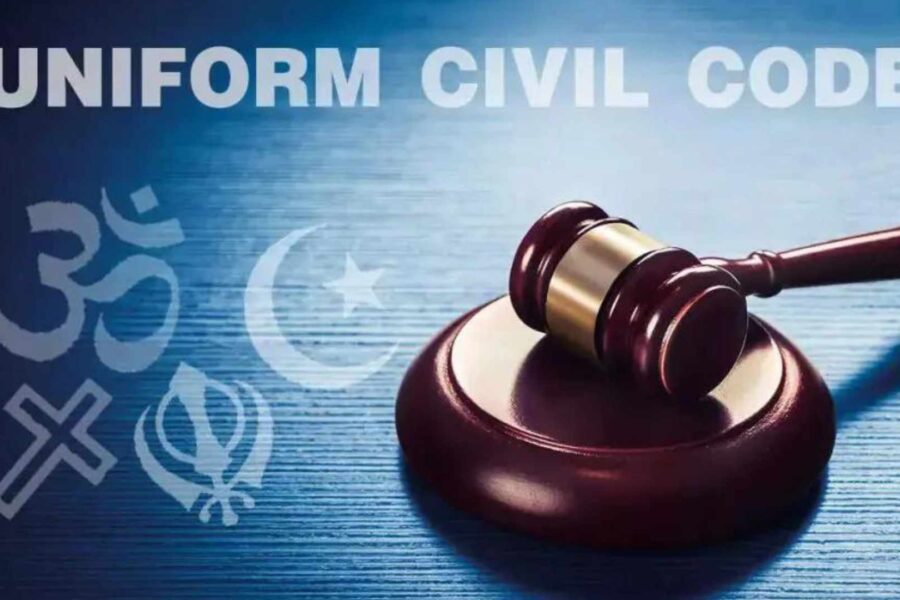The Uniform Civil Code (UCC) has been one of the most debated and contentious issues in Indian society and politics. It refers to the proposition of having a common set of civil laws applicable to all citizens, irrespective of religion, caste, or gender. The aim of UCC is to replace personal laws based on religious scriptures and customs with a uniform legal framework governing marriage, divorce, inheritance, and adoption.
Historical Background
The idea of a Uniform Civil Code in India has its roots in the colonial era when the British government left personal laws largely untouched to avoid interference in religious matters. However, post-independence, the framers of the Indian Constitution recognized the need for a uniform civil law. Article 44 of the Directive Principles of State Policy (DPSP) states: “The State shall endeavor to secure for the citizens a uniform civil code throughout the territory of India.” However, since DPSPs are not legally enforceable, UCC remains an aspirational goal rather than an immediate mandate.
Need for a Uniform Civil Code
- Ensuring Equality and Justice: UCC aims to eliminate gender and religious-based discrimination in personal laws, particularly in areas like divorce, inheritance, and maintenance.
- National Integration: A common set of civil laws can foster unity and reduce communal tensions by treating all citizens equally under a single legal framework.
- Simplification of Laws: Currently, India has multiple personal laws for different communities, leading to complexity and confusion. A UCC would bring clarity and uniformity.
- Secularism and Modernization: A common civil code is in line with the principle of secularism and modern legal standards that prioritize human rights over religious customs.
- Judicial Concerns: The Supreme Court has repeatedly called for UCC in cases such as Mohd. Ahmed Khan v. Shah Bano Begum (1985) and Sarla Mudgal v. Union of India (1995), highlighting the inconsistencies in personal laws.
Challenges to Implementing UCC
- Religious Sensitivities: Many religious communities, particularly Muslims, fear that UCC would interfere with their religious practices and undermine their personal laws.
- Political Opposition: Given the communal nature of the debate, many political parties hesitate to push for UCC due to fear of losing vote banks.
- Diversity of India: India is home to various religions and cultures, each with its own traditions. Implementing a single set of laws may be seen as ignoring cultural diversity.
- Legal Hurdles: The judiciary must ensure that UCC aligns with fundamental rights while maintaining the essence of religious freedoms guaranteed under Article 25 of the Constitution.
Arguments in Favor of UCC
- The Hindu Code Bills, passed in the 1950s, unified Hindu laws related to marriage, adoption, and succession. A similar approach could be adopted for all communities.
- Goa is the only Indian state with a Uniform Civil Code in practice under the Portuguese Civil Code. Its successful implementation demonstrates that UCC can work in India.
- Several Islamic countries like Turkey and Tunisia have reformed personal laws, indicating that religious customs can coexist with modern legal frameworks.
Steps Towards UCC
- Gradual Implementation: Instead of enforcing UCC abruptly, a phased approach could help in smooth transition and acceptance.
- Wider Consultation: Engaging religious leaders, legal experts, and civil society in discussions can help build consensus.
- Awareness and Education: Creating public awareness about the benefits of UCC can reduce resistance and misconceptions.
- Judicial Reforms: Strengthening the judiciary to handle disputes arising from implementation can ensure a smooth legal transition.
Conclusion
The Uniform Civil Code is not just a legal reform but a step toward a more egalitarian and progressive society. While the road to UCC is challenging, a balanced approach that respects religious sentiments while upholding constitutional values is necessary. A well-structured and inclusive UCC can help India progress toward true secularism, gender equality, and social justice.
Contributed by Rohit Jain (Intern)

